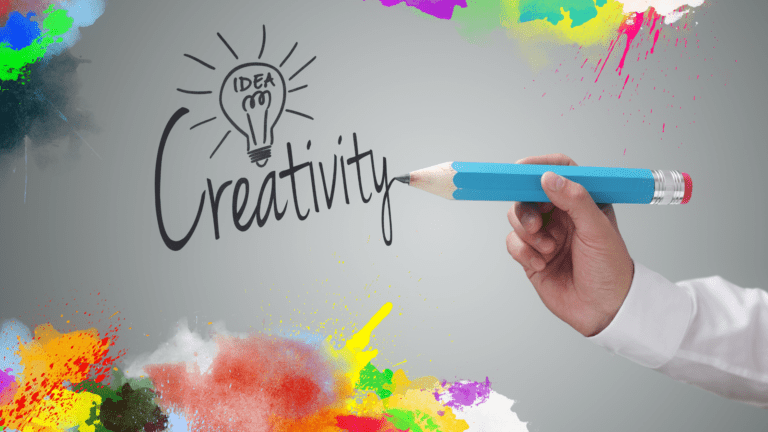Exploring the Relevance of Humanities Education in Today’s Technological Era

In exploring why humanities are essential, we unearth the roots of our society’s collective knowledge. The humanities are academic disciplines that study the human condition using methods primarily analytical, critical, or speculative, as distinguished from the empirical approaches of the natural sciences. These disciplines encompass literature, language, history, philosophy, religion, and the arts—each a key to unlocking the rich tapestry of human culture and experience. They allow us to look back at our historical past, providing context for the present and giving us tools to forecast and shape our future. In a swiftly digitizing world, the critical perspective of humanities education on cultural and historical norms becomes increasingly crucial as we aim to preserve humanity in a technology-driven society.
The Interdisciplinary Impact of Humanities
Far from being isolated in the ivory towers of academia, the humanities demonstrate profound interdisciplinary influence that bridges different realms of knowledge. Humanities scholars frequently draw upon methodology and insights from various fields, including social sciences, natural sciences, and formal sciences such as mathematics. This interdisciplinary approach fosters a unique fusion of perspectives, enriching individual fields of study. Humanities education teaches us to see the connections between a Renaissance sonnet, an algorithm, and an economic model—providing comprehensive lenses through which we can address modern challenges and excel in our multifaceted world. But why is humanities important? Humanities are vital because they offer a lens through which we can explore and understand the complexities of human existence, including our values, beliefs, and cultural heritage. By studying humanities disciplines such as literature, philosophy, and history, individuals develop critical thinking skills, empathy, and a broader worldview, essential for navigating an increasingly interconnected and diverse global society. Ultimately, the humanities provide the foundation for meaningful dialogue, ethical decision-making, and preserving our collective intellectual and artistic heritage.
Humanities Education and Critical Thinking
One of the core strengths of humanities is the cultivation of critical thinking—a skill that transcends the boundaries of academic disciplines and holds immeasurable real-life value. Humanities coursework encourages students to engage with complex texts, to reflect on philosophical dilemmas, to analyze historical events critically, and to assess the ever-changing cultural landscapes. These tasks foster an analytical mindset capable of deconstructing arguments and piecing together informed viewpoints. Critical thinking is imperative today, where misinformation spreads rapidly, and decisions often require thoughtful scrutiny.
Emotional Intelligence and Empathy through Humanities
The role of humanities in nurturing emotional intelligence and empathy cannot be understated. Studies in literature, art, history, and languages offer profound insights into the human condition, enabling individuals to cultivate an understanding and tolerance of others’ feelings and perspectives. These insights help develop the ability to build and maintain healthy relationships, communicate effectively, and navigate social complexities—skills that are increasingly important in an interconnected global society. By exploring diverse narratives and exercising critical empathy, a humanities education enlightens individuals on the importance of emotional awareness at a personal and community level.
Humanities Education and Civic Responsibility
A comprehensive humanities education instills a strong sense of civic duty and responsibility in individuals. By learning about historical movements, civic structures, and philosophical concepts, students are better equipped to understand and contribute constructively to society. Engaging with the humanities encourages reflection on public ethics, community engagement, and the implications of policy on societal well-being. This kind of reflective education is critical in preparing individuals to be responsible citizens and take on leadership roles that require a nuanced understanding of human experiences and societal development.
Innovation and Creativity Fostered by Humanities
Innovation is not confined to labs and tech startups; it thrives equally in the classrooms and corridors where humanities are taught. These fields stir the imagination, spark creativity, and provide critical thinking skills that are the cornerstone of innovative problem-solving. Students of humanities learn to see beyond the obvious, ask probing questions, and conceive novel solutions. The ingenuity fostered within these disciplines is evident in diverse areas, from creative writing to museum curation. These contributions enrich our cultural landscape and drive economic growth and societal advancements by fostering diversity of thought and innovation.
The Global Perspective Offered by Humanities Studies
Today’s globalized economy demands professionals with an expansive worldview, and humanities studies provide such a perspective. By exploring world literature, cultural studies, and foreign languages, students become more aware of the complexities of various cultures and global issues. This understanding is crucial for fostering international cooperation and navigating the nuances of diplomacy and global business. Moreover, the capacity to engage thoughtfully with different cultures facilitates the construction of a more inclusive and empathetic world where mutual respect and understanding lay the groundwork for shared prosperity and peace.
Humanities in the Digital Age
The digital age has introduced unprecedented ways of creating, sharing, and interacting with humanistic content. Digital humanities, lying at the crossroads of computing and the traditional humanities, are redefining scholarship in the twenty-first century. By leveraging digital technology, scholars analyze literary texts in new ways, historical artifacts are digitized for the world to access, and the arts are infused with innovative digital forms. This merger expands the reach and impact of humanities, opening doors to uncharted territories in research, archiving, and disseminating knowledge.
Prospects of Humanities Graduates in the Workforce
The prospects for humanities graduates in the workforce are diverse and often underestimated. The skills honed during the study of humanities—critical thinking, persuasive writing, and perceptive analysis—are in high demand across many fields. Graduates find careers in education, media, public policy, and beyond. Its report shows the diverse pathways and meaningful contributions of humanities students to the workforce and the broader economy. Understanding diverse human cultures, communicating effectively, and critically evaluating information are strengths that humanities graduates bring, making them versatile and adaptable in an ever-changing job market.
The Future of Humanities Education
The trajectory of humanities education looks bright as it continues to innovate and evolve alongside other disciplines. With the rapid transformation of societies worldwide, the study of humanities offers crucial insights into our time’s ethical, cultural, and philosophical questions. As global challenges mount and our digital footprint deepens, sustaining and advancing humanities education ensures that progress is grounded in understanding human history and culture. It helps to foster a well-rounded citizenry capable of critical inquiry and creative solutions, securing the humanities not only as a pillar of academic tradition but also as a beacon for the future.
Similar Posts:
- None Found









